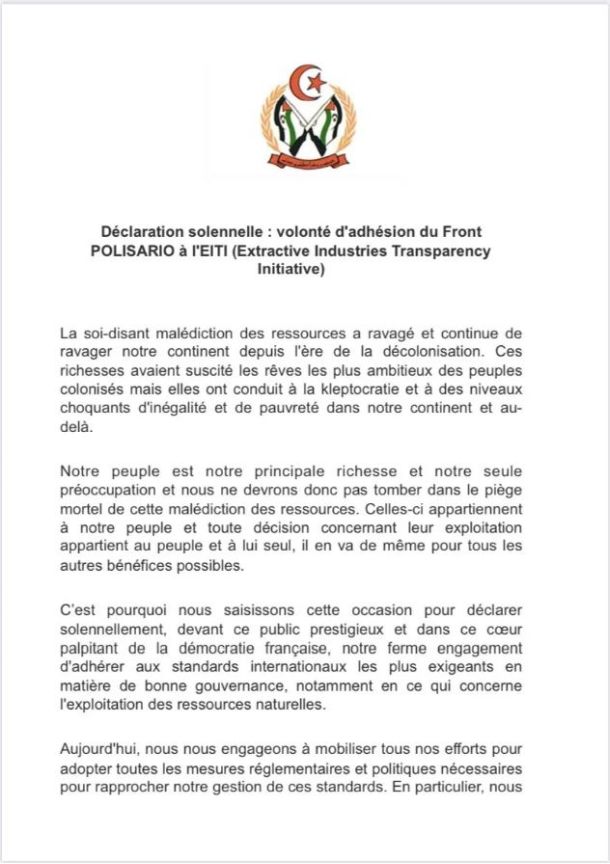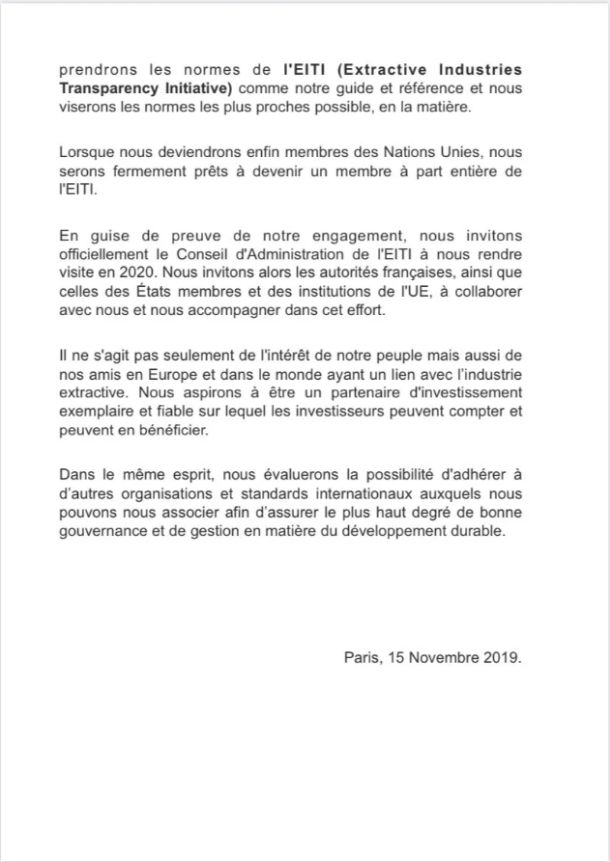Polisario Front has announced its intention to subscribe to the Extractive Industries Transparency Initiative (EITI) - a global standard for good governance of oil, gas and mineral resources.
In a statement dated 15 November, included below, Western Sahara liberation movement Polisario explains that once Western Sahara becomes a Member State of the United Nations, it will become a member to the Initiative. In the meantime, all necessary measures will be taken to approach the standard, the statement reads.
The EITI standard requires of its Member States that they disclose information along the extractive industry value chain, including on accorded contracts and licenses, and on how the revenue thereof makes its way through the government and is used to contribute to the country's economy.
While Morocco occupies three-quarters of Western Sahara, Polisario controls the eastern areas of the territory. Exploration of the mineral reserves of the area is ongoing. At the same time, Polisario has concluded oil contracts pertaining to oil blocks that are located in the parts of the territory that are at present under Morocco’s military occupation.
The EITI is open to countries with extractive industries. To date, 52 countries have obtained the status of EITI compliant, analogous to membership of the Initiative.
The Polisario Front has acceded international conventions before, including the Geneva Call for Action against Landmines and the Geneva Convention.


Saharawi Republic adopts mining code
Brazilian cement giant Votorantim behind sand plunder
WSRW was present as the Brazilian company Votorantim last week received a cargo of sand from occupied Western Sahara in Tenerife, Spain.
The hunt for oil and gas
So far, no oil and gas have been discovered in Western Sahara. Two exploration licences are today operated by foreign companies, both from Israel, both offshore.
World's largest fund excludes Israeli oil company over Western Sahara
The Norwegian government pension fund has announced that it has excluded Delek Group from its portfolio due to its petroleum exploration offshore occupied Western Sahara.


